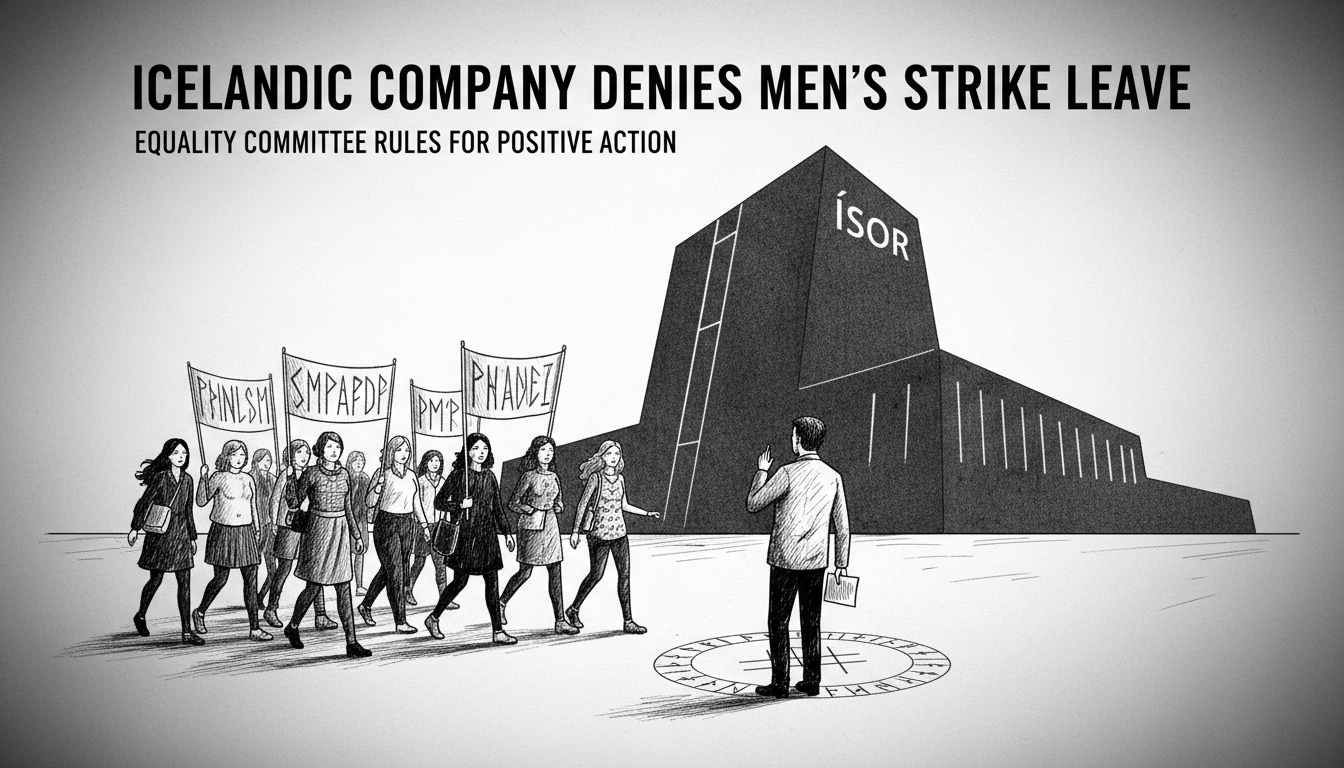Iceland's Equality Complaints Committee ruled that energy company Ísor could legally deny paid leave to a male employee who wanted to join a women's strike. The decision states the company did not violate gender equality laws when it refused the man's request for paid time off during the October 24, 2023 women's strike.
The case began when the man filed a complaint after Ísor denied him 4.2 hours of paid leave to participate in the women's strike. He had requested time off to support gender equality demands, particularly addressing the wage gap affecting women.
The strike was organized by a coalition of trade unions, interest groups, and associations. It marked 48 years since Iceland's first women's strike in 1975, known as Kvennafrídagurinn or Women's Day Off.
Ísor's CEO had emailed staff days before the strike, encouraging women and queer employees to participate. The message stated that participants wouldn't need to make up work hours but should inform supervisors of expected absences.
The man emailed the CEO on the morning of the strike day. He explained he needed to be absent from work that afternoon to support gender equality demands.
Iceland has a strong tradition of women's strikes dating back to 1975. That year, 90% of Icelandic women refused to work, cook, or care for children for one day. The action paralyzed the country and demonstrated women's economic importance.
The 2023 strike continued this tradition amid ongoing gender pay gap concerns. Iceland consistently ranks first in global gender equality indexes but still faces a 10% wage gap between men and women.
The Equality Complaints Committee determined that allowing only women and queer people paid leave constituted specific positive action. Such measures aim to advance equality and don't violate anti-discrimination laws when properly designed.
This case highlights the complex balance between gender equality and targeted equality measures. The committee viewed the company's policy as supporting women's participation in the strike rather than discriminating against men.
Icelandic law permits temporary special measures that promote equality for underrepresented groups. The committee found the strike leave policy fit this category because it addressed historical gender imbalances.
The man's complaint argued that denying him paid leave while granting it to female colleagues constituted gender discrimination. The committee rejected this interpretation, noting the context of the women's strike.
Women's strikes in Iceland have historically been powerful tools for change. The 1975 strike led to the world's first gender equality law and Iceland's first female president.
The 2023 strike occurred during ongoing debates about gender equality progress. While Iceland leads globally in gender equality, activists argue more work remains, particularly on wage gaps and gender-based violence.
This ruling sets a precedent for how companies can support gender-specific equality events without violating discrimination laws. It acknowledges that sometimes equality requires different treatment to address existing imbalances.
The decision reflects Iceland's practical approach to gender equality. The country combines strong legal frameworks with recognition that achieving true equality sometimes requires targeted measures.
What was Iceland's first women's strike?
The first Icelandic women's strike occurred on October 24, 1975, when 90% of women refused to work, cook, or care for children for one day. This event became known as Women's Day Off and led to significant gender equality reforms.
Does Iceland have a gender pay gap?
Yes, despite ranking first in global gender equality indexes, Iceland still has about a 10% wage gap between men and women. This persistent inequality motivates continued activism including women's strikes.
Can companies legally offer different benefits by gender?
In limited circumstances, yes. Icelandic law allows temporary special measures that promote equality for underrepresented groups. The Equality Complaints Committee determined the women's strike leave policy qualified as such a measure.

